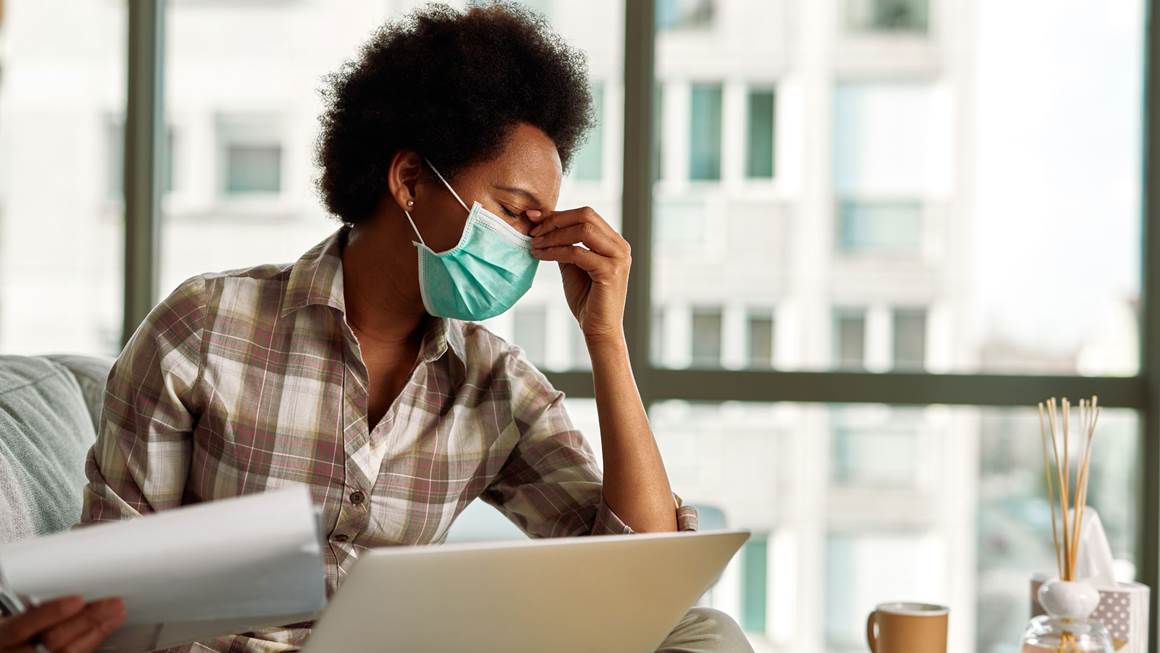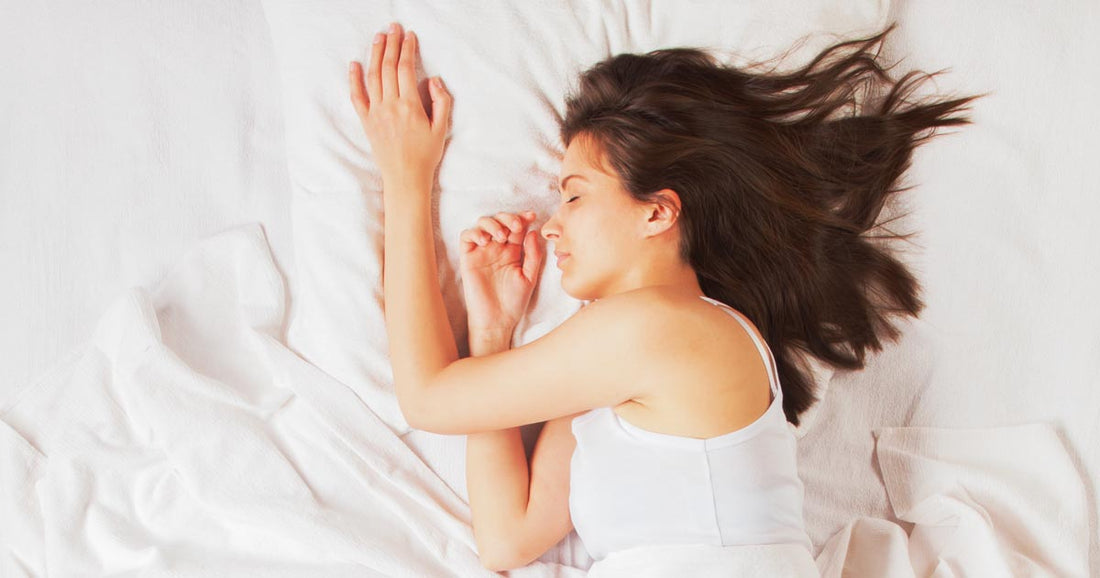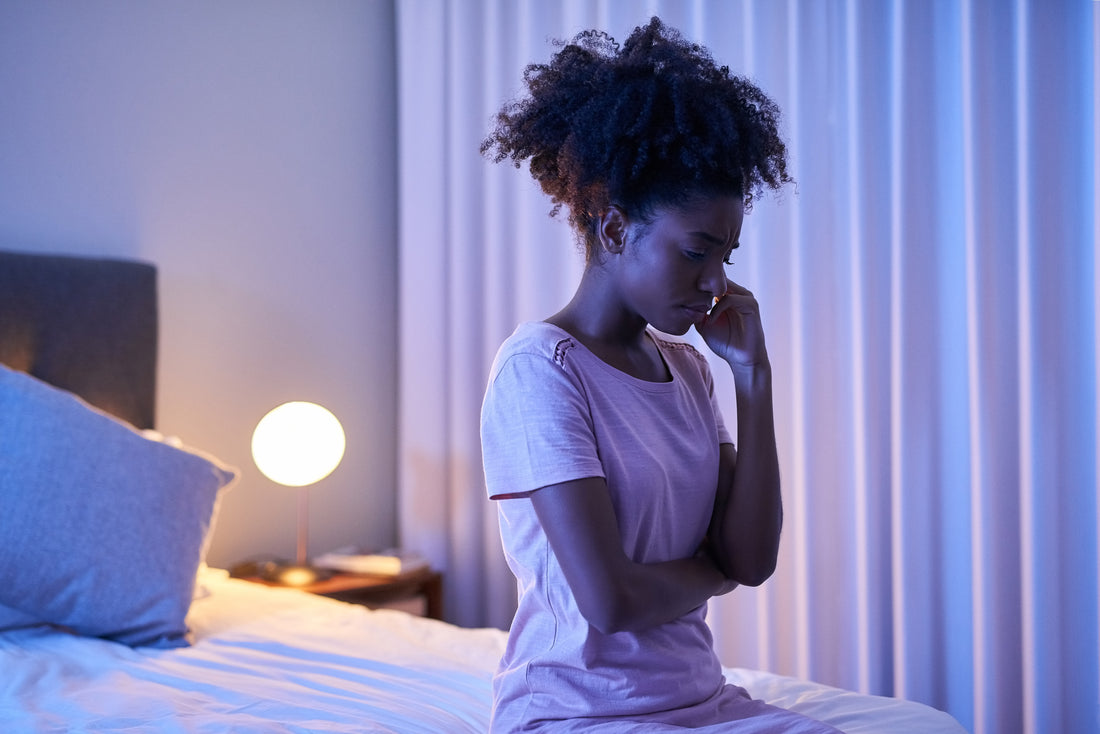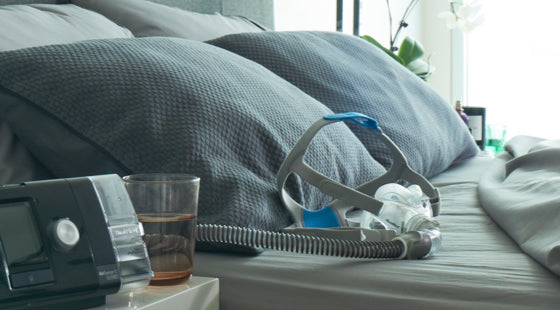News
Healthy Habits to Help With Sleep Apnea
wp:paragraph Sleep apnea can affect anyone regardless of age, gender, or body type, however, there are certain lifestyle factors that can increase your risk and make the symptoms worse. /wp:paragraph wp:paragraph While there is no cure for sleep apnea, and a CPAP machine may be the best choice for many people, there are some lifestyle changes you can make to help better manage your condition, or to reduce your risk of developing sleep apnea. Here are a just a few of those: /wp:paragraph wp:paragraph Maintain a healthy weight: Sleep apnea tends to be more common in individuals who are obese as the extra fat tissue can block your airway and cause a lot of the apnea episodes. For this reason, maintaining a healthy diet and getting regular exercise is recommended to help alleviate the effect of sleep apnea symptoms. While it may not cure your sleep apnea, it can certainly provide some relief and make your condition much more manageable. /wp:paragraph wp:paragraph Quit smoking: If you are a regular cigarette smoker, you may want to think about quitting. Tobacco has been known to cause inflammation and swelling in your airway, which leads to increased snoring and apnea episodes. Be sure to speak to your doctor to get help for this. /wp:paragraph wp:paragraph Limit alcohol: Adults who drink excessively tend to experience snoring and a disrupted sleep cycle on a regular basis. Alcohol relaxes the throat muscles that control your breathing and can also interfere with your REM sleep cycle. While moderately drinking is okay, stop drinking at least 3-4 hours before bedtime and don’t use alcohol as a sleep aid. /wp:paragraph wp:paragraph Try a different sleep position: Sleeping on your side is generally better for keeping your airway open as you sleep. If you are a back or stomach sleeper than try using a body pillow to keep you on your side. Make sure your pillow and mattress are both in good condition as well. /wp:paragraph wp:paragraph Practice good sleep habits: Proper sleep hygiene may not cure your sleep apnea but can still help you to get a good night’s sleep! Make sure you are getting the same amount of sleep each night, try to keep your sleep/wake times consistent, limit daytime naps and avoid the use of technology devices before bedtime. /wp:paragraph
about Healthy Habits to Help With Sleep ApneaWhich Sleep Position is Best For You?
wp:paragraph Everyone has a preferred position that they sleep in almost consistently whether it’s on your side, your back, or your front. The position you sleep in plays a big role in the quality of your sleep, and different positions have different benefits, so there is no one size fits all approach. Here are a few of the different sleeping positions and their benefits. /wp:paragraph wp:paragraph Side Sleeper: This is one of the most common sleep positions that offers many benefits including alleviating digestion and reducing snoring. Many side sleepers prefer to either lie with their legs straight, or to keep their legs curled up close to their body in the fetal position. As great as this position can be, it has been known to cause lower backpain and shoulder stiffness. Using a pillow to prop your hips up can help with this. /wp:paragraph wp:paragraph Back Sleeper (Supine Position): Although not as common, this is the sleep position with the most benefits for your health. Not only does good old gravity help to keep your body evenly aligned over your spine, but it can also alleviate pressure on your back and joints. The only downside is that it is known to be a more difficult position for those with snoring or sleep apnea. Make sure you are properly supported with a good mattress and pillow and make sure you get the proper treatment for any sleep problems. /wp:paragraph wp:paragraph Front Sleeper (Prone Position): Sleeping on your front is not as common, although it has been known to reduce snoring and sleep apnea. Sleeping on your front side has been known to not only cause neck and back pain, as well cause strain to your muscles and joints. To alleviate this problem, make sure you invest in a good pillow and mattress. /wp:paragraph wp:paragraph Contact us for more information. /wp:paragraph
about Which Sleep Position is Best For You?Common Sleep Problems for the Spring
wp:paragraph March 18th is World Sleep Day, and with spring officially starting very soon, we are looking at a few common sleep problems that many people experience at this time of year. Spring comes with not only a change in the weather, but you may also notice a few unwanted changes in your sleeping patterns. Here are four common sleep tips for the spring problems that a lot of people deal with it. /wp:paragraph wp:paragraph Allergies: Yes, springtime allergies are extremely common with the warmer weather, so you may be dealing with symptoms such as sneezing and congestion that are present while you are trying to sleep. This can be extremely unpleasant and can keep you up at night, so be sure to take advantage of any over the counter medications that may alleviate your symptoms and speak to your doctor if it gets worse. /wp:paragraph wp:paragraph Extended sunlight: Now that the days are longer and the sun is setting later, you may find that your internal clock has been thrown off a bit. Our bodies tend to naturally wind down when it is darker so your bedtime may just be a bit off. Make sure you get in lots of sunlight during the daytime and be sure to take the time to properly wind down at night with a solid bedtime routine. /wp:paragraph wp:paragraph External noise: With the weather nicer, you may find yourself kept up by not only birds chirping away, but other factors, such as noisy construction projects in your area may be keeping you up. If you cannot sleep through it, try using earplugs and look at options to keep your windows as soundproof as possible. /wp:paragraph wp:paragraph Increase in activities: Between spending more time outdoors, an increase in social gatherings and participating in sports and other activities, your bedtimes may not be as consistent in the spring as they normally would be. While there is nothing wrong with deviating from your routine every now and then, make sure you get back on track, and avoid high intensity exercise before bedtime. /wp:paragraph wp:paragraph Contact us for more information. /wp:paragraph
about Common Sleep Problems for the SpringTips for Surviving “Covid-somnia”
wp:paragraph We are now officially two years into the Covid-19 pandemic that has changed so much about our lives in many ways. Maybe you or someone you know battled the Covid-19 virus, maybe your job has been affected, maybe you have had to change your travel plans and maybe you have not been able to see friends or family through all this. /wp:paragraph wp:paragraph One of the biggest changes that many people have experienced in the past two years is with their sleep, and “Covid-somnia” has become extremely common in the past few years. While things are slowly starting to look up with the decline in cases, if you are suffering from insomnia more often because of the pandemic, there are ways that you can turn your sleep around. /wp:paragraph wp:paragraph Here are four tips to survive Covid somnia: /wp:paragraph wp:list {"ordered":true} wp:list-item Be mindful of media consumption: All of the events happening in the world can certainly be distressing. As a result, watching, reading or listening to the news too much can induce anxiety and can interfere with your sleep as a result. While there is nothing wrong with wanting to stay up to date with all that is happening in the world, try to set limits on media consumption and try to avoid it too close to bedtime. /wp:list-item wp:list-item Find a relaxing activity to do: This can help you to unwind before bedtime and sleep better at night. This includes reading, meditation or taking a warm bath or shower. Starting this at least 30 minutes before bedtime can be very beneficial in getting a good night’s sleep. /wp:list-item wp:list-item Be careful with medications that promote sleep: While taking melatonin, or another over the counter medication can be a temporary solution to insomnia, experts recommend that you do not make this a regular thing. If your insomnia becomes chronic, then it is time to speak to a doctor for additional help. /wp:list-item wp:list-item Stick to a routine: Our internal clocks thrive on a consistent routine, especially when it comes to bedtime, as it is helpful to have some normalcy in these uncertain times. Make sure you get at least 7-9 hours of sleep each night and that you go to bed and wake up around the same time each day. /wp:list-item /wp:list wp:paragraph Contact us for more information. /wp:paragraph
about Tips for Surviving “Covid-somnia”Sleep Differences in Women
wp:paragraph In honour of International Women’s Day on March 8th, we will be looking at sleep differences between women and men. While it may be easy to think that something like sleep affects both genders the same way, this is not necessarily the case. Here are a few of the major differences in sleep habits among women. /wp:paragraph wp:paragraph Amount of sleep required /wp:paragraph wp:paragraph The average adult requires around 7-9 hours of sleep each night, though women tend to do better with a little more than that. What you may not know is that women have more trouble fulfilling this requirement more than men do. This is often because of a few minor differences in both the REM sleep cycle and the circadian rhythm (AKA your internal clock) for women. While the differences are very subtle, it can still add up and affect a woman’s sleep cycle significantly more. /wp:paragraph wp:paragraph Insomnia and other sleep disorders /wp:paragraph wp:paragraph This includes sleep apnea, and chronic insomnia just to name a few. Did you know that women are 40% more likely than men to experience insomnia in their lifetime? Insomnia in women also comes with more symptoms than in men. And let’s not forget about sleep apnea, while it is diagnosed in men more often, women can still get it too and sadly, a lot of sleep apnea cases in women go mis-diagnosed because of how common it is in men. /wp:paragraph wp:paragraph Hormones /wp:paragraph wp:paragraph One of the biggest factors of sleep differences amongst the genders! A shift in hormone production throughout a woman’s life can create sleeping issues. This starts as early as puberty, once a woman starts menstruating. A drop in hormone production before a woman’s menstrual cycle can cause physical and emotional effects, which include a lack of sleep. Pregnancy also brings a significant change in hormone production that can interfere with a woman’s sleep cycle not only throughout pregnancy, but in the post-partum stage as well. Finally, menopause has been known to create many sleep disturbances in women, thanks to many symptoms such as hot flashes and night sweats. /wp:paragraph wp:paragraph Contact us for more information. /wp:paragraph
about Sleep Differences in WomenAn Overview of CPAP Supplies and Parts
wp:paragraph If you are newly diagnosed with sleep apnea, your doctor may have prescribed a treatment called a CPAP machine, which stands for Continuous Positive Airway Pressure and exhibits a continuous air flow through your system to prevent sleep apnea episodes. If you are new to the CPAP then you may be feeling a little overwhelmed by everything that helps it to function successfully. So here is a little overview of all the important parts of a CPAP machine: /wp:paragraph wp:paragraph The machine: The most important part as the other parts will not work without it. The level of air flow set by your doctor will be programmed on the machine and can only be changed by your medical team. /wp:paragraph wp:paragraph The mask: There are many different types of masks that are suitable for different preferences, take the time to find one that will suit your personal preference. /wp:paragraph wp:paragraph Tubing: An essential part for connecting the mask to the power supply. /wp:paragraph wp:paragraph Mask liners/cushions: Since the mask will be sitting on your face for several hours at a time, the lining or cushions on the mask will make for a more comfortable user experience. /wp:paragraph wp:paragraph Humidifier (if applicable): While this may not be used all the time, the humidifier keeps your airway moist as a dry airway is extremely common amongst CPAP users. When and how this is used will depend on not only the strength of your prescription, but also external factors such as climate. /wp:paragraph wp:paragraph Here are a few other parts that are good to have on hand: /wp:paragraph wp:paragraph Backup power supply: Most CPAP machines can be plugged into a power source in the wall, but having a backup is always good in case the power goes out while you are sleeping. /wp:paragraph wp:paragraph Portable battery pack: These can be great for travel so that you still get a good sleep away from home. /wp:paragraph wp:paragraph Cleaning supplies: Yes, your CPAP will need to be cleaned on a regular basis to function well and prolong the lifespan of the parts. It’s best to have cleaning supplies specifically designated for your CPAP that are not used for other items in the house. /wp:paragraph wp:paragraph Many of these parts can be found on papsmart.com /wp:paragraph
about An Overview of CPAP Supplies and PartsWhat is Sleep Hygiene?
wp:paragraph You may know hygiene as a term that refers to maintaining good overall health, whether through brushing your teeth daily or taking a shower to keep yourself clean. /wp:paragraph wp:paragraph Sleep hygiene is basically the same idea. It refers to good habits to help you get a good night’s sleep, which is extremely important seeing how vital sleep is to your overall health. /wp:paragraph wp:paragraph Bad sleep hygiene can occur when you are having trouble falling asleep, you don’t stay asleep through the night, you are awoken frequently by external factors, or if you are feeling excessively sleepy during the daytime. Of course, there will be days where your sleep hygiene may get off track for a night or more but staying as consistent as possible is important for proper sleep hygiene! /wp:paragraph wp:paragraph Here are four tips to maintaining proper sleep hygiene: /wp:paragraph wp:paragraph Set a proper sleep schedule /wp:paragraph wp:paragraph Decide on a bedtime that works best for you and gives you the 7-9 hours of sleep you need. Make sure you stick to this as much as possible and try and keep your wake-up times consistent as well. Also, try and avoid daytime napping, if possible, as this can interfere with your sleep routine. /wp:paragraph wp:paragraph Follow a good bedtime routine /wp:paragraph wp:paragraph Everyone has their own preferences when it comes to bedtime routines but in general, make sure your routine is one that will help you to relax and wind down. Dim your bedroom lights, put all your technology devices away at least 30 minutes before bedtime and do a relaxing activity that calms you down. /wp:paragraph wp:paragraph Practice healthy habits in the daytime /wp:paragraph wp:paragraph This is one of the key pieces for getting a good night’s sleep. Maintain a healthy diet that includes lots of fruits and vegetables, stay hydrated, and try to get in around 30 minutes of exercise during the daytime. Also, try to avoid alcohol, caffeine, and nicotine close to bedtime. /wp:paragraph wp:paragraph Create the perfect sleep environment in your bedroom /wp:paragraph wp:paragraph Make sure your bedroom is a place that promotes good sleep! Make sure your bed has a comfortable mattress, pillows, and bedding, and use blackout curtains to block out any outside light that may disturb your sleep. Keep the bedroom at a comfortable temperature and take advantage of earplugs or a white noise machine if you are sensitive to external noise. /wp:paragraph
about What is Sleep Hygiene?Is “Sleeping In” a Bad Thing?
wp:paragraph Many people spend the work week anticipating the extra sleep they will get on the weekend (or whenever their days off may fall). It can be a truly relaxing feeling where you don’t have to wake up to an alarm the next day. But can this be bad for your sleep? /wp:paragraph wp:paragraph While it is generally recommended by sleep experts that you go to sleep and wake up at the same time each day, there is really nothing wrong with sleeping a little longer every now and then, as long as you are smart about it. /wp:paragraph wp:paragraph How do you sleep on work nights? /wp:paragraph wp:paragraph Many people who sleep in on their days off may not realize that the extra few hours of sleep they are getting is actually to make up for the poor sleep they are probably getting on the other nights of the week. While an hour or two of extra sleep on your weekends is usually fine, sleeping in for as much as several hours is not necessarily a good thing. /wp:paragraph wp:paragraph Pay attention to how you are sleeping on work nights. Are you staying up late when you have to wake up early? Do you feel tired during the daytime? If so then you may need to make a few adjustments to your bedtime during your work week. Your body is probably desperate to catch up on some much-needed sleep once the weekend rolls around. /wp:paragraph wp:paragraph Tips for maintaining a consistent sleep /wp:paragraph wp:paragraph Make sure you are getting enough sleep every night, even on work nights, so that you are well rested, alert and ready for the day ahead. The average adult requires around 7-9 hours of sleep per night so if you are getting less than this, consider slowly moving your bedtime up a little earlier. Of course, life will happen every now and then, and there may be a few unplanned late nights that may interrupt your sleep cycle but it is important to get back on track! /wp:paragraph wp:paragraph All that to say, there is nothing wrong with sleeping for an extra hour or two if you don’t have to wake up early and enjoy that extra sleep! Just be smart about it and make sure your sleep is not suffering on the other nights of the week. /wp:paragraph
about Is “Sleeping In” a Bad Thing?Sleep Differences Amongst Couples
wp:paragraph Since Valentine’s Day is just around the corner, let’s talk sleep and your relationship. /wp:paragraph wp:paragraph If you and your partner share a sleeping space, then you may already know that some of your sleeping habits and preferences may differ. While sharing a bed with the love of your life may sound romantic, many couples have opposing sleep habits and preferences and have to learn to compromise and adjust to sleeping together, which is completely normal! /wp:paragraph wp:paragraph Here are a few “sleep differences” that many couples go through: /wp:paragraph wp:paragraph Different preferences for bedtimes /wp:paragraph wp:paragraph Everyone has their own bedtime preferences, and this can be dependent on many factors, including work, family responsibilities and more. In many relationships, one partner may be a night owl while the other is an early riser. While going to bed at the same time may sound nice, it doesn’t always work for everyone. If you and your partner don’t go to bed at the same time, make sure you respect each other’s sleep patterns, which includes avoiding the use of bright lights in the bedroom if the other partner is sleeping and using earplug so movement doesn’t wake the other partner. /wp:paragraph wp:paragraph Movement /wp:paragraph wp:paragraph Many people move around frequently in their sleep, which can be very disturbing to their partner. Practicing relaxation techniques before bed can be helpful and limit movement. You may also want to consider investing in a mattress that minimizes motion transfer. /wp:paragraph wp:paragraph The sleeping environment /wp:paragraph wp:paragraph Some of these factors can include the temperature of the bedroom, the number of blankets on the bed and any noise in the room (whether from a sound machine, music or the TV). These may be areas where you and your partner will have to have a discussion and make some compromises. Some of these may include sleeping with separate blankets, using earplugs to block out unwanted noise, taking the TV out of the bedroom and compromising on the room temperature. /wp:paragraph wp:paragraph Snoring /wp:paragraph wp:paragraph Snoring can often be very bothersome to the other partner, but there are ways to alleviate this. Oftentimes, snoring can be alleviated from maintaining healthy diet and exercise habits, or sleeping on their side but other times, medical intervention may be required. If you or your partner snore frequently, make sure you speak to your doctor to see if the snoring is due to a medical issue that may require treatment. /wp:paragraph wp:paragraph Contact us for more information. /wp:paragraph
about Sleep Differences Amongst Couples








